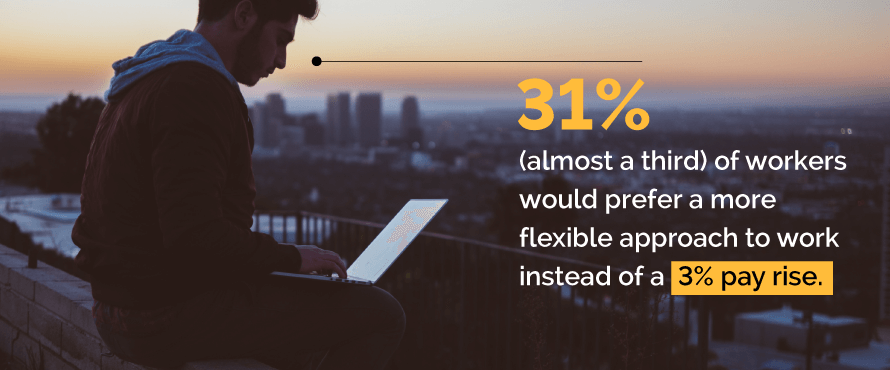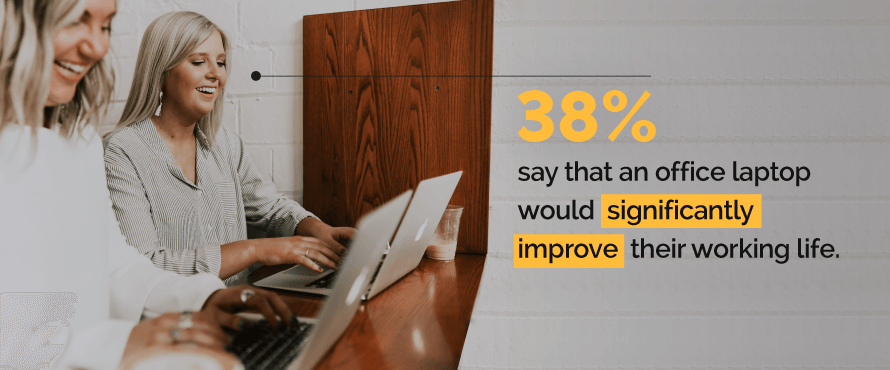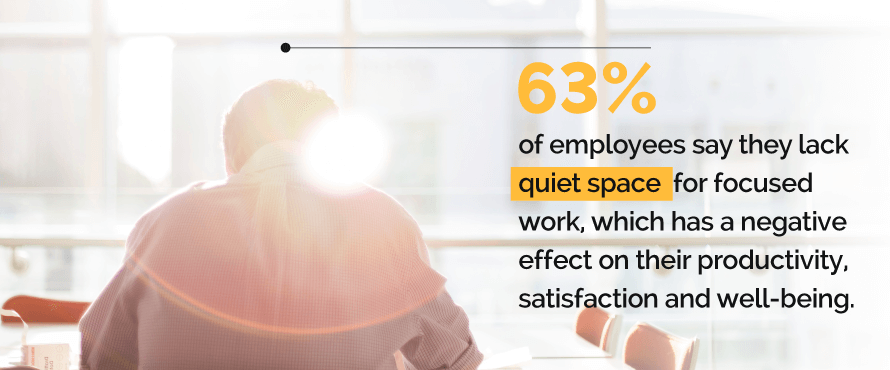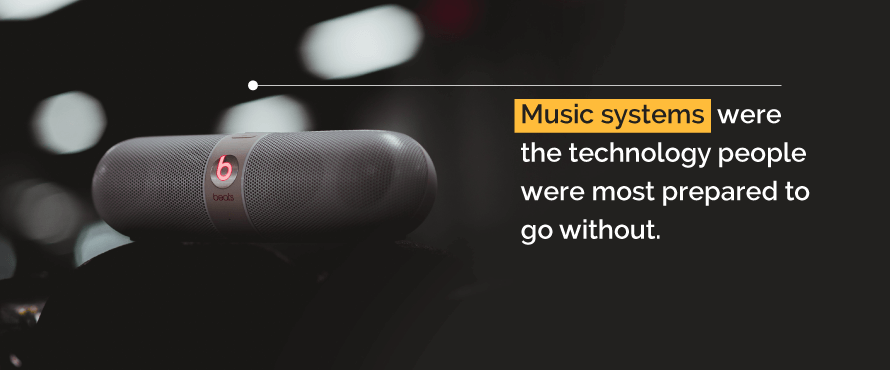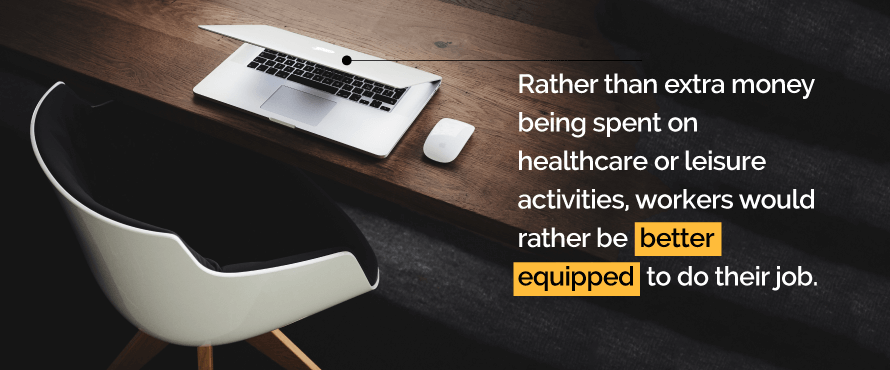When office technology started getting smart, did we get smarter? The average worker now receives around 121 emails and sends around 40 a day. Combine that level of interaction with instant messaging, project management software, mobile technology and colleagues with innumerable questions, and it’s easy to see how office technology can overwhelm today’s workers rather than lightening their burden.
Increasingly, employees and employers are looking into ways to increase productivity without sacrificing well being or mental health. In this report, we explore the HR implications of our technology-driven offices and how they’re affecting our working lives.
Is this mass of technology in the workplace what office workers really want? Which pieces of equipment would most workers do without and what technology should managers prioritise? In order to try and answer these questions, we asked 2000 office workers about the technology they use and whether it’s fit for purpose.
Technology
Across the board, there appears to be a disconnect when it comes to the quality and suitability of equipment employees are provided with. For example, 35% of office workers think the computers in their office don’t have sufficient processing power and memory; in fact, only 43% of office workers think that their computers are fit for purpose. Now, while some office managers might suggest that a bad workman blames his tools, it’s unlikely that almost half of their workers fall into that category.
Of course, in a rapidly changing digital environment, with companies growing (or shrinking) at rapid rates, it can be difficult to determine the level of IT an office needs. One way to mitigate overspend and protect capital during uncertain times is to consider hiring options. Our survey shows that 65% of office workers think up to 25% of IT hardware goes unused in the office – so perhaps employers are missing a trick when purchasing machines that quickly become out of date or go unused. That’s a lot of wasted capital that could be reassigned to get the latest versions of laptops, workstations, tablets, iPads and AV displays as and when specific projects require the hardware.
In terms of their ability to use technology in the workplace, some people might be surprised that 97% of people feel that they are competent at using the office equipment that’s not at their desks. This suggests that when office workers say they’d be happy to lose the printer, scanner and copy machine, it’s most likely because they don’t need it rather than they don’t know how to use it!
Flexibility
A recent study showed that almost a third (31%) of workers would prefer a more flexible approach to work instead of a 3% pay rise.
Year on year, remote working is increasing in popularity. In fact, half the UK workforce is expected to work from home at least one day a week by 2020.
Furthermore, a recent article in The Independent suggested that more than half of full-time workers in the UK want to do away with the traditional nine-to-five working day.
It’s clear that flexibility is important to workers. Our survey shows that laptops were the item that people most wanted, with 38% saying that an office laptop would significantly improve their working life.
After laptops, people wanted wireless charging points and tablets. So, whether people want to work from home, or access their work from anywhere within the office, an agile approach to work is clearly key. That agility need not come at the expense of power or capability; slightly larger laptops with incredible processing power and large screens (originally developed to power gaming ) are readily available, allowing all manner of workers – from accountants to developers – to work wherever they like.
Out of all office equipment, people found laptops and combined copy/printer/ scanners most worth retaining. These two items might at first appear at odds with each other. Workers want to be flexible but many still recognise the need for a centralised location and hard copies of important documents. However, the two items are not all that different; they come in the form of a multi-use tool that takes up less space and consumes less energy. A combined copy machine might be big but it’s still pretty agile!
It’s clear that flexibility, portability and multi-use tools are the order of the day. By facilitating a “laptop-lifestyle” and flexible working hours, employers could benefit from more engaged, motivated staff and much lower overheads.
Productivity
So much of today’s technology in the workplace promises to streamline the business and improve productivity. However, an abundance of technological distractions can be counterproductive. Concentration is a key component when it comes to productive workers. Studies have shown that 63% of employees say they lack quiet space for focused work which has a negative effect on their productivity, satisfaction and well-being.
So, while one might think that having the radio on might contribute to a productive and upbeat environment, it’s more likely that workers are craving some peace and quiet. Our survey shows that the least desired pieces of office equipment are actually radios, music systems, microwaves and scanners; all noisy machines that add to the cacophony of office background noise. And while some office managers might argue in favour of headphones, not all workers find music helps them concentrate.
If there is a slump in company productivity, designated quiet zones or remote working could be the answer. Most people perform better in these settings, as they can escape all the noises and distractions of the office, such as music, noisy microwaves, buzzing scanners and chatty coworkers. Added to which, doing away with all that technology could free up money for what workers really want.
Motivation
Firstly, it’s perhaps not surprising that the majority of those surveyed felt that money their company saved should be spent on a better pay packet for themselves. Two-thirds of office workers wished their company spent extra money on better financial remuneration.
However, encouragingly, the survey also shows that almost half of the employees surveyed are actively looking to upskill, with 47% of males and 41% of females saying they would like to see money put towards training.
Added to which, just under half of office workers (48%) thought their company should spend extra revenue on improving office technology. Rather than extra money being spent on healthcare or leisure activities, workers would seemingly rather be better equipped to do their job. Whether this comes as a result of better training or better equipment, office workers appear to be more motivated by efficiency and productivity than company-sponsored welfare.
There was however a difference in opinion between the young and old when it comes to working practices and social issues. We discovered that people aged 18-44 find AV displays/TV monitors more important than those aged 45 and over – suggesting that for younger people collaborative working, visual aids and aesthetic working experiences are of high importance.
The results also showed that people aged 18-34 are more interested in environmental and sustainability issues than older age groups, which suggests the new working generation are keen to keep their emissions low and encourage ways to be sustainable in the office.
In order to motivate staff, values and interests should be taken into consideration, and remote working is one way of minimising traditional office waste as well as reducing the emissions created by a daily commute.
Conclusions
Our survey results suggest a number of interesting things, with one core message. Equipping staff with great technology in the workplace and the training to use it will undoubtedly increase productivity and employee satisfaction. However, it’s not just any technology that office staff are clamouring for. Throw out the radio and forget purchasing that new giant scanner. Employees want flexible working, multi-use tools and remote opportunities. The laptop lifestyle is now more attractive than ever and it’s clear that workers want the office technology that allows them to roam.
While salary and fiscal reward are still the highest on the list of workers’ priorities, many office workers want to see their companies save money (potentially on less useful tech) and funnel that back into the business in terms of training and better equipment. There is also clearly an interest in social wellbeing, particularly in the younger age bracket, that suggests employers should be working hard to avoid unnecessary consumption and waste.
Mark Bates, General Manager at Hire Intelligence UK says: This survey shows that most employees are quite tech-savvy, value good multi-function devices and crave more flexibility. I would recommend employers stop and assess the tech they own. Do they own what everyone else owns? Why? Have they asked their personnel what tech they like or assessed what actually gets used? If they can lose some old and loud tech, great! If they can support the desire for flexibility by sourcing specific hardware for specific teams and projects, then that’s even better. For a more agile approach to providing hardware, renting technology can offer a solution and also allow novel technology to be trialled in-situ.




